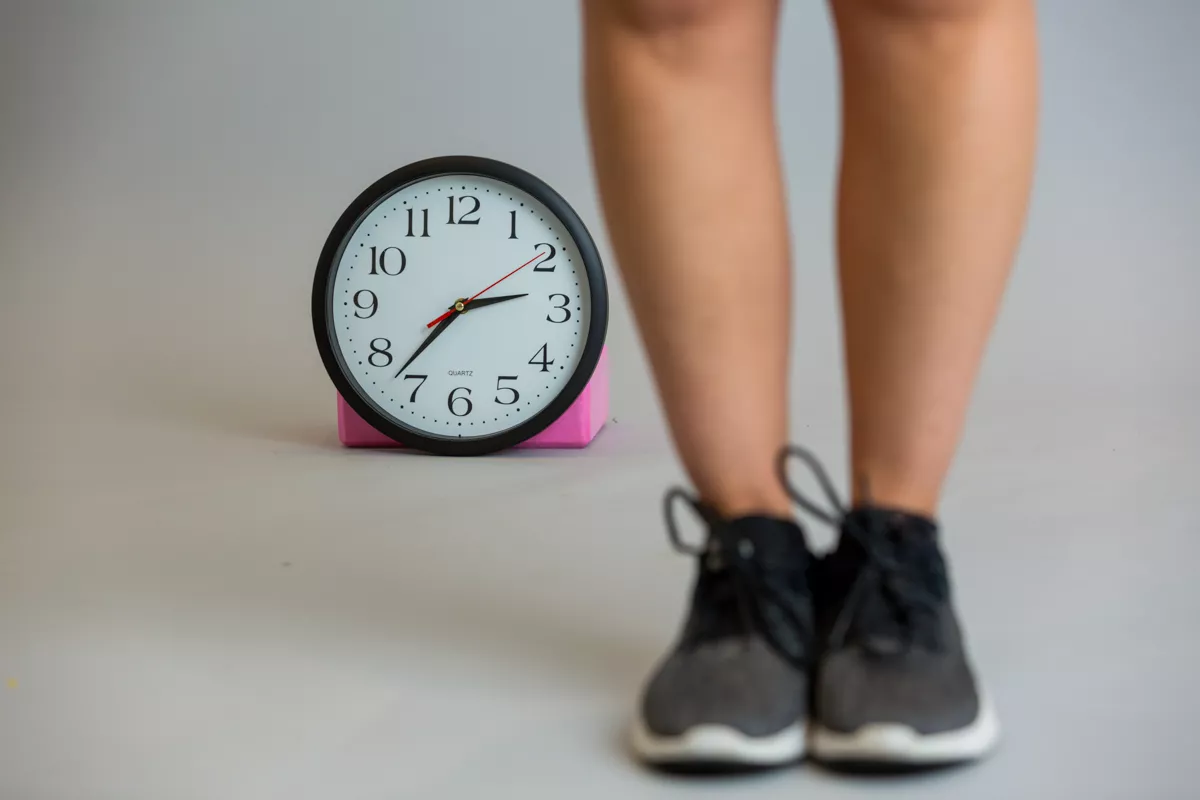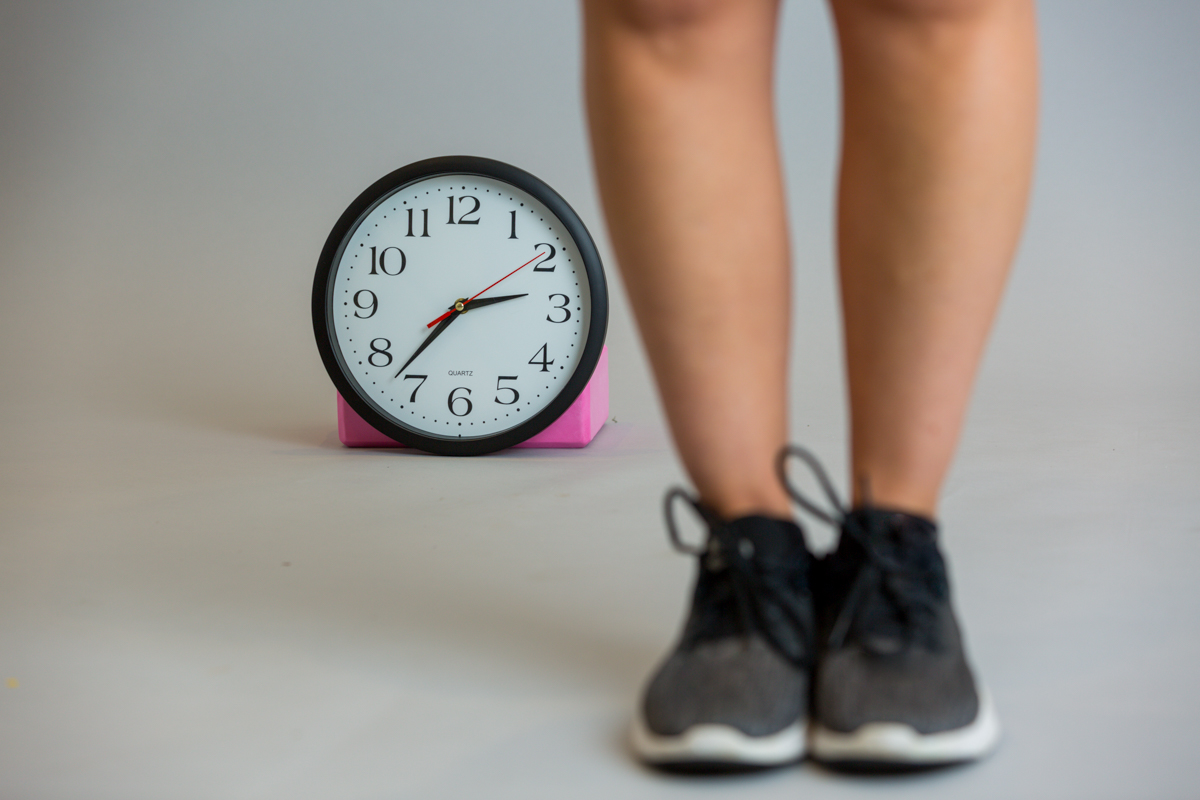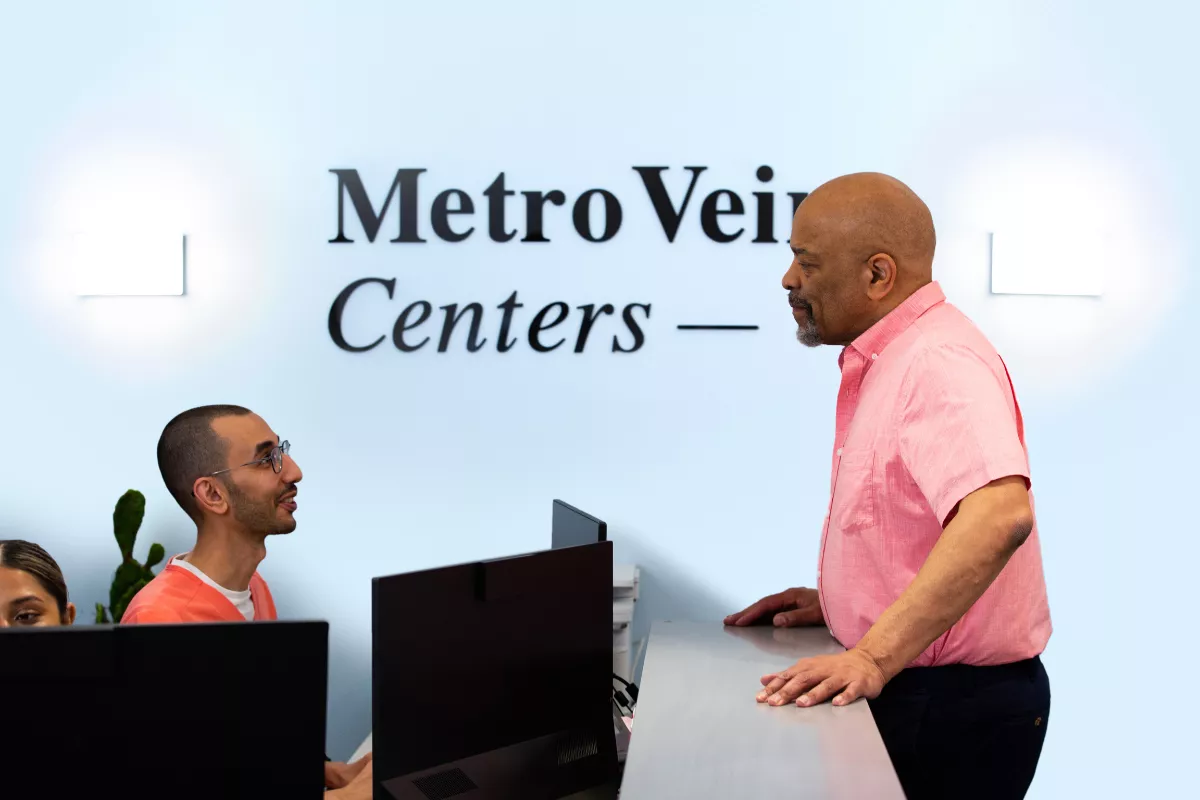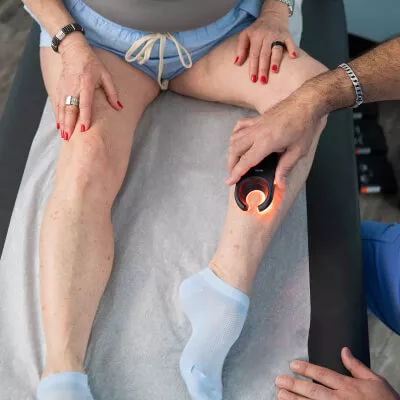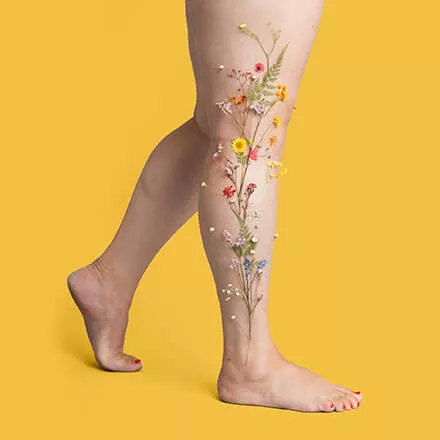Will My Varicose Veins Ever Go Away Permanently?
A common question for those living with varicose veins is whether they will ever go away and whether they will disappear permanently. The short answer is yes. When you commit to a comprehensive treatment plan with a vascular specialist, your treated varicose veins will not come back.
Following vein treatment for the underlying condition (which can be over several weeks or months), your treated varicose veins will not return because they will treat the underlying cause of the condition, not just the appearance.
It is possible, however, that new varicose veins could develop over time. Varicose veins occur due to many factors and having varicose veins in the first place means that you may be prone to develop more in the future.
Read on to learn more about the progression of varicose veins and how to reduce the likelihood of a recurrence of this uncomfortable health condition.
What are Varicose Veins?
Varicose veins are enlarged, twisted veins that often appear on the legs. They can occur due to Chronic venous disease (CVD) or venous insufficiency (CVI), when weak valves in the veins prevent blood from flowing properly, causing it to pool and the veins to bulge. Because your legs carry the weight of everything in your body, most varicose vein issues arise in your lower extremities.
The Natural Progression of Varicose Veins
Vein disease is a progressive disease, and symptoms typically worsen over time. Luckily, there are treatments available that are minimally invasive and covered by most insurance plans. To better understand the impact of varicose veins, it's essential to know how they develop and progress over time.
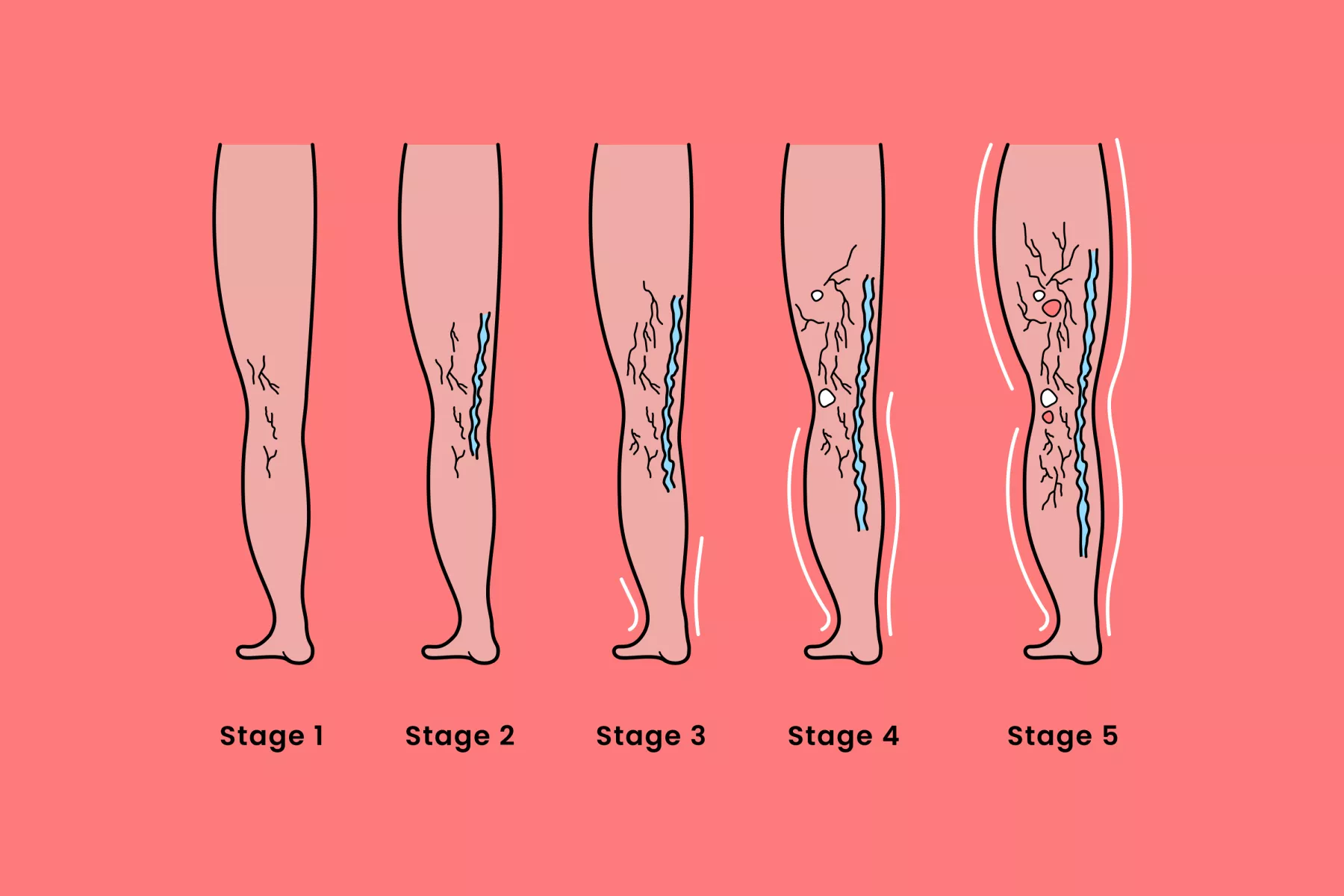
Mild Stage
In the mild stage, small, visible veins, known as spider veins, appear on the skin, often with few symptoms.
Moderate Stage
Once varicose veins form, they can progress into larger, more twisted, and visible veins. Symptoms such as burning, aching or swollen legs, and loss of mobility often accompany this stage.
Severe Stage
Once varicose veins reach the advanced stage, you may experience significant pain or discomfort, severe skin changes and swelling. The skin may become susceptible to infection, hardening (lipodermatosclerosis, and ulcers. There is an increased risk of blood clots at this stage.
Are you concerned about what your symptoms might mean?
Take Our Vein Health Assessment
Conservative Management Techniques
Depending on the severity of your condition, conservative non-surgical techniques to manage varicose veins may include:
- Compression therapy/compression stockings
- Elevating the legs regularly
- Choosing vein-healthy foods and maintaining a healthy weight
- Exercising regularly
- Avoiding standing for long periods
- Wearing loose clothing to reduce constriction
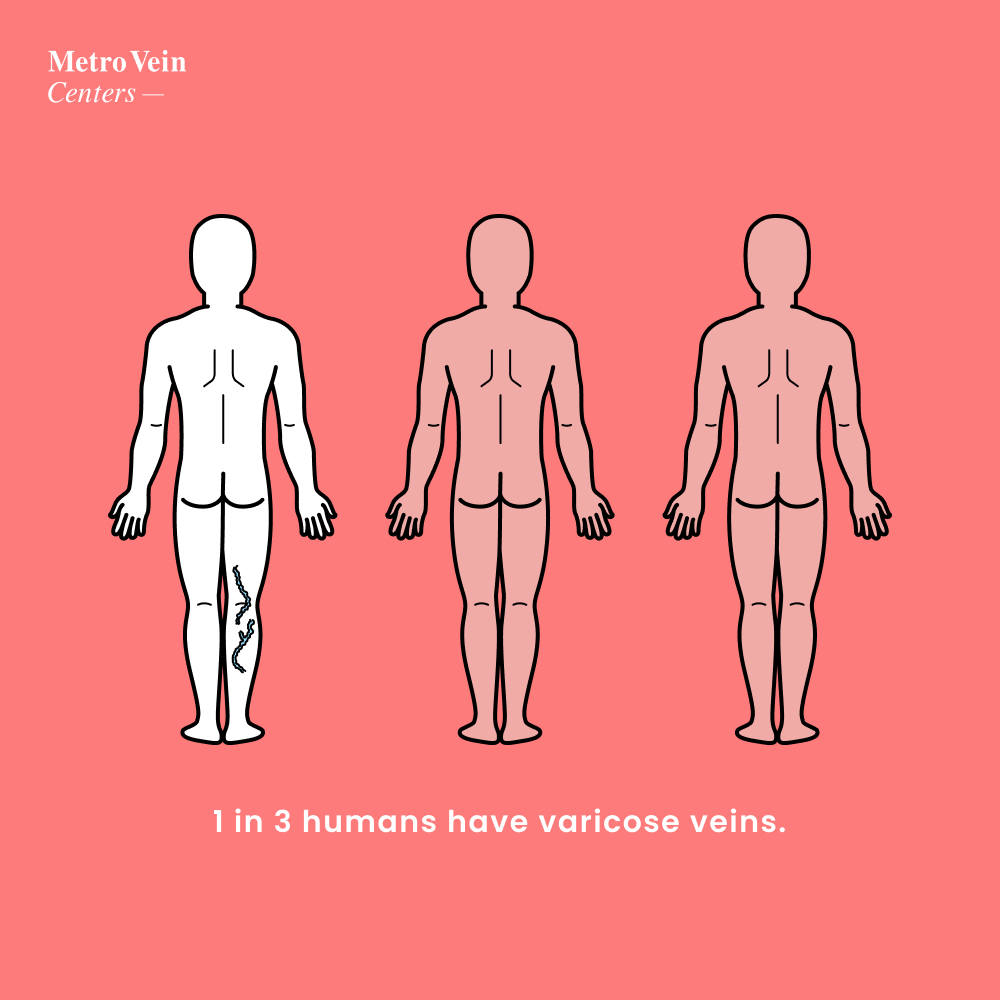
Medical Treatment Techniques
Because varicose veins are a medical condition, a board-certified vein doctor is the best person to evaluate your condition and recommend the best treatment options for you. Common varicose vein treatments to medically manage the condition include:
- Sclerotherapy
- Laser treatment
- Radiofrequency ablation (RFA)
- Microphlebectomy
Long-Term Outcomes After Vein Treatment
The prognosis for varicose veins is excellent when treated by a vascular specialist, and
most patients report feeling relief quickly post-treatment, with minimal downtime. Metro Vein Centers have treated over 100,000 patients, with a 98% patient satisfaction rate.
Long-Term Outcomes After Vein Treatment
The prognosis for varicose veins is excellent when treated by a vascular specialist, and
most patients report feeling relief quickly post-treatment, with minimal downtime. Metro Vein Centers have treated over 100,000 patients, with a 98% patient satisfaction rate.
"My experience at Metro Vein Centers has been very positive and professional, from reception and technicians to the doctor's procedure. All the staff are friendly and helpful. There is little to no discomfort during the procedure, and recuperation is virtually painless." - M.H., Metro Veins Centers New Jersey"
Prevention Strategies
To increase your chances of preventing varicose veins from coming back, it's important to maintain the lifestyle changes recommended by your vein center and follow all treatment recommendations.
Lifestyle factors that reduce your chances that your varicose veins will return include:
- Adding low-impact exercise to your routine
- Maintaining a healthy weight
- Quitting (or reducing) smoking and tobacco use
- Reducing caffeine and alcohol consumption
- Wearing compression stockings
- Elevating your legs
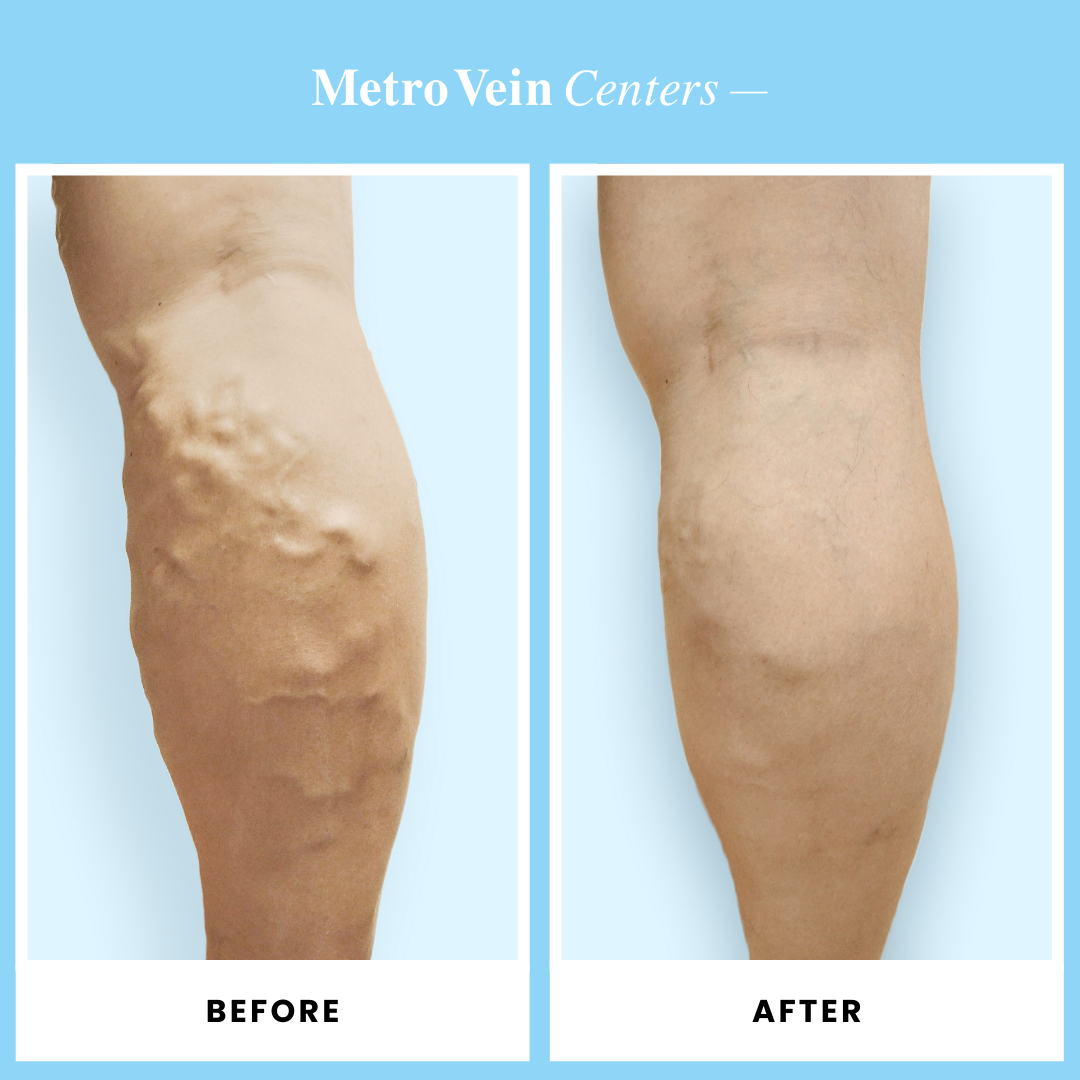
When to Seek Professional Help
The veins in your legs may be a warning sign. Get them looked at as soon as possible. Varicose veins can be accompanied by no symptoms at all, or they can be extremely painful and lead to other complications. Either way, it's always a good idea to seek an evaluation from an expert vein specialist.
At Metro Vein Centers, we have over a dozen board-certified, nationally accredited vein specialists who can explain the best next steps for your legs. We accept over 200 insurance plans, and over 97% of our vein treatments are covered by insurance. We'll work to determine the optimal treatment plan for you after your initial consultation.
If You Don't Seek Treatment
When left untreated, varicose veins can lead to more serious problems down the road: uncomfortable symptoms such as pain, burning, aching, and more; the possibility of a blood clot; or even a potentially fatal event such as a pulmonary embolism.
Varicose vein issues may never permanently go away, but with our minimally invasive treatments, we have a near 100% success rate in fixing them for our patients--thereby keeping any major vein issues at bay. The sooner you make an appointment with one of our vein doctors, the better. Schedule your free evaluation with Metro Vein Centers today.
Frequently Asked Questions
Can varicose veins disappear without treatment?
With the exception of some pregnancy-induced veins, no, varicose veins will not go away by themselves. Varicose veins are not just an occasional hiccup, as you might get when feeling a stomach ache one day or waking up with your neck hurting from how you slept. Rather, without treatment, varicose veins are a pervasive issue--though they don't have to wreak havoc on your life (or your legs!).
How long does it take for varicose veins to go away after treatment?
After treatment, varicose veins can take several weeks up to several months to fully disappear but most patients feel better in as little as a week after treatment!
What lifestyle changes can help reduce the appearance of varicose veins?
Following a healthy lifestyle that includes eating right, exercising, and avoiding smoking and alcohol consumption can reduce the appearance of varicose veins. Wearing loose clothing and compression stockings can also help.
Are there any home remedies that can permanently remove varicose veins?
Unfortunately not. Despite what you may hear from internet research or friends, there is no effective treatment for varicose veins that is based on supplements, massage, fad diets, or lotions alone.
How effective is sclerotherapy in eliminating varicose veins long-term?
Research shows that sclerotherapy is quite effective in eliminating varicose veins and that improvements usually last long-term. However, new areas of veins can develop over time and sclerotherapy does not prevent new varicose veins from appearing.

Can pregnancy-related varicose veins go away on their own?
Yes. If you never had varicose veins until you were pregnant, there is a chance your veins will actually disappear. This is because the weight of carrying a child, in combination with your body working overtime to pump blood, can bring about pregnancy-induced varicose veins. Once you've given birth and pressure has gone back to normal, veins may naturally disappear within 2-12 months. A vein specialist can assess your veins and help you explore your options during this time.
What's the difference between treating spider veins and varicose veins?
Spider veins treatments are generally more cosmetic, and are minimally invasive. Treatments include sclerotherapy, a foam injection treatment, or excel V+ Laser. Treatments for varicose veins are often considered medically necessary, and include sclerotherapy, radiofrequency ablation, and microphlebectomy.
How do I know if my varicose veins require medical intervention?
The best course of action when you have varicose veins is to schedule an evaluation with a board-certified vein doctor. Our doctors will discuss your symptoms with you as well as your treatment options. Most treatments are covered by insurance and are minimally invasive.
Book Your Free Evaluation Today!
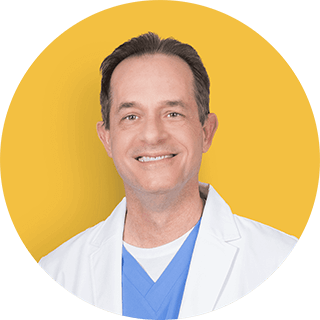
Dr. Philip LoPresti
Meet Dr. Philip LoPresti DO, DABVLM, FACS, a board-certified vein specialist and surgeon with over 20 years of experience. Schedule an appointment with him in Queens, NY today.
Meet Dr. Philip LoPresti
Trusted insight from the nationally accredited, board-certified vein doctors at Metro Vein Centers.


